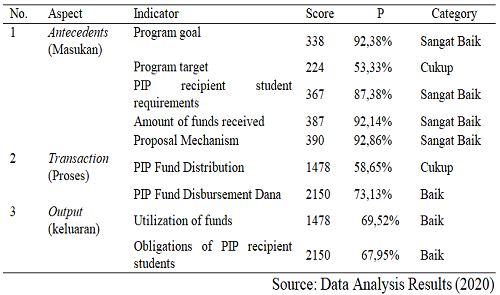The Effectiveness of The Smart Indonesia Program in Sosa District
DOI:
https://doi.org/10.31258/jes.5.3.p.533-541Keywords:
Effectiveness, Smart Indonesia ProgramAbstract
This study aims to determine the effectiveness of the implementation of the Smart Indonesia Program in Sosa District. This study used an evaluation research model, namely the Evaluation Countenance Stake model with a quantitative approach. The population in this study were all 153 students who received the Smart Indonesia Program for Senior High Schools in Sosa District, and the sample was taken using Isaac Michael's table totaling 105 people with an error rate of 5%. The data were obtained using questionnaires and interviews, then analyzed descriptively by statistical means. The results of this study indicate that in general the implementation of the Smart Indonesia Program in Sosa sub-district has been carried out well. Furthermore, when viewed from several aspects related to the implementation of this program, the antecedent aspect is in the very good category, the Transaction aspect is in the good category, and the output aspect is in the good category. Thus, it can be stated that the implementation of the Smart Indonesia Program in Sosa sub-district has been carried out effectively, however, to be even more effective in implementing this program, it is hoped that the program implementers involved will be more selective in the process of submitting prospective recipients of the Smart Indonesia program, providing socialization to students and parents regarding the distribution of the Indonesia Pinta Program, and forming a monitoring team on the use of funds for the Smart Indonesia Program.
Downloads

Downloads
Published
Issue
Section
License

This work is licensed under a Creative Commons Attribution-NonCommercial-ShareAlike 4.0 International License.











